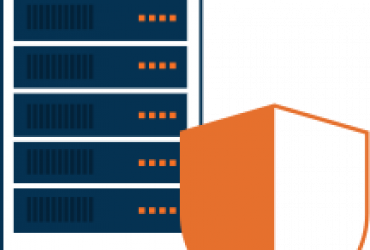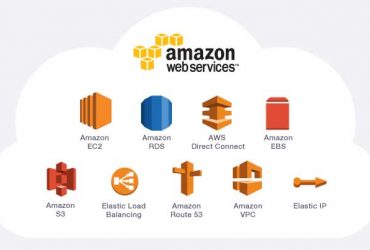Suppose you’re building an application for storing sales data. We will start by saving some columns of data, for example, the Item Sold, Quantity, Price, Sale Date, and the Customer sold to. One of the main storage choices to consider is saving this data in a text file. The issue with text documents is that during a read, if the text file is large, it can take a lot of time to open and scan the content of the document to look what we need. And if we wanted to see all the sales to a particular customer, the whole text file would need to be read, and each line occurrence of the customer name would need to be saved in some place until we had them all. If we saved it to a spreadsheet rather than a text file, we would have need a Sort feature built in so that we are able to find all the sales to a particular customer earlier, but again, if the file was huge, opening the spreadsheet could take a lot of time.
If we used a database, we could save the data and the customer address data in two separate places, so the size of the document wouldn’t get any bigger. Not only would our sales data be smaller in a database, but the real address data would be smaller too. In excel or text document, every sales line would incorporate a full address. In a database, the address would only be recorded once.
Two of the most popular database management systems in the market are:
– Microsoft SQL Server
– MySQL Server
While one isn’t better than the other, there are certain uses in which Microsoft’s RDBMS may be a better decision than Oracle’s MySQL, and the vice versa.
MySQL Server:
A database is software that stores a lot of data. Every database has at least one distinct APIs for creating, accessing, managing and replacing the information it holds.
MySQL is created, marketed, and supported by MySQL AB, which is a Swedish organization. MySQL Server is an open database management system and owned by Oracle. It is a quick, simple to-use RDBMS being used for small and big organizations. MySQL server is becoming so famous because of numerous good reasons:
It is released under an open source license which implies that you don’t have to pay anything to use it
It is a powerful program in its own particular right. It handles the functionality of the most costly and powerful database packages.
* MySQL uses a well-known SQL data language.
* MySQL works on different operating systems and with numerous languages such as PHP, PERL, C, C++, JAVA, and more.
* MySQL works rapidly and works well even with extensive data sets.
* MySQL supports large databases, up to 50 million columns or rows more in a table. The default file size restrain for a table is 4GB, but you can extend this to a limit of 8 million terabytes (TB).
* MySQL is adaptable. The open-source GPL license permits developers to change the MySQL software to fit their own particular environments.
* MySQL Server uses the MyISAM storage engine.
Microsoft SQL Server
Microsoft SQL Server is a relational database management system (RDBMS) from Microsoft that is intended for the enterprise environment. MS SQL Server runs on T-SQL (Transact – SQL), a set of programming additions from Sybase and Microsoft that add many features to standard SQL, including transaction control, error handling, row handling, and declared factors.
- Microsoft SQL Server is not an open source and payment has to be made through MS SQL Server.
- Microsoft SQL Server provides indexed views which are powerful, performance wise.
- User defined functions are supported in MS SQL Server
- Online backup support is large and complete in Microsoft SQL Server.
- Microsoft SQL Server has C2 compliant certification. Database security is verified by third party.
- Microsoft SQL Server works on different operating systems and with numerous languages such as C++, JAVA, PHP, R, Ruby, Python and more.
- Fine grained access rights according to SQL-standard.
- Microsoft SQL works rapidly and works well with extensive data sets.
- Microsoft SQL Server uses the SYBASE storage engine.
MySQL VS Microsoft SQL Server
Platforms
MySQL server can be used on numerous platforms, while Microsoft SQL Server has been Windows-only and appeared to remain that way. However, in March 2016 Microsoft declared its plans to support Linux – sending shockwaves through the database management market. Microsoft SQL Server has now become a reasonable choice for Linux, which was previously a major issue for users.
Compatibility
MySQL came under fire for not supporting probably the most widely recognized features of other databases, for example, transactions or stored methodology. These features and a large group of other important ones were introduced in the 5.0 update, silencing a great deal of criticism.
Storage Capacity
MySQL can use various storage engines for individual tables, which means the user can select the best one for a given table. One such engine is InnoDB, which was designed for high reliability.
Microsoft SQL Server uses its own exclusive storage system for everything; but maintains various safeguards against information loss. Both SQL Server and MySQL can run in groups for high accessibility.
Security
Microsoft SQL Server gives market leading security features and it includes Microsoft’s Baseline Security Analyzer which helps administrators make sure that the Microsoft SQL Server establishment is up to date. MySQL does not include a tool. Both technologies are EC2 consistent and have security support for building applications at government level.
Syntax
The difference between Microsoft SQL Server and MySQL is how the two programs translate the SQL-92 standard. Microsoft SQL Server uses an implementation called T-SQL, which was intended to make computations easier and faster.
MySQL uses ANSI SQL 99, which supports a significant number of useful behaviors from SQL Server but does not have the breadth and depth of T-SQL. This means that an application written particularly for MySQL or Microsoft SQL Server can’t be changed from one platform to the other without rewriting generous parts of the code.
Conclusion:
The main reason to select any one database product over another should be according to your applications and where you are in your development cycle. It is the use and relevance of the applications that you put to use in your business that determine the database product you choose.
For applications where the development procedure would benefit from some approaches to licenses and different platform environment support, MySQL would be a superb option.
 Server Hardening Linux: Knowing More About
Server Hardening Linux: Knowing More About





Comments (0)